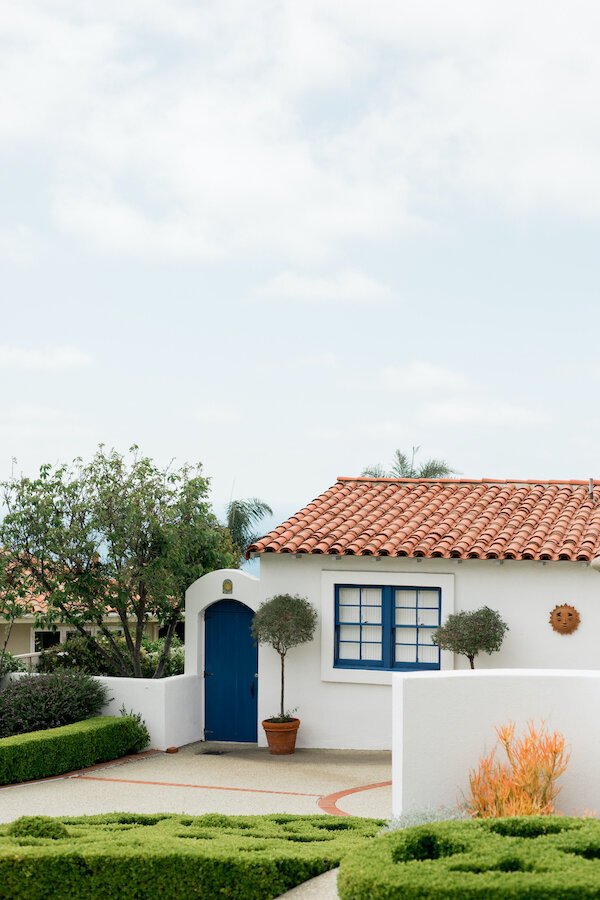
What To Do When Your Friends Start Moving Away
Embracing Connection & Community
The friendships we make in school and at work are blessed with the framework of four walls, a tangible space that becomes a reliable and consistent ground for our shared laughs, stories, and goals. But as we get older and our personal plans and paths begin to change, “growing apart” can start to feel more literal than figurative. Distance is created and it’s not abstract; it’s the kind that you can see on a map.
Whether we meet our significant others, get bitten by the travel bug, feel the urge to return to our roots, or seek more challenging career opportunities, moving away from one home to create a new life in another isn’t uncommon. And yet, no matter how many times it happens, the transitions don’t get any easier.
Since the start of the COVID-19, more than a handful of my close friends, co-workers, and childhood mates have left Los Angeles. One by one, for reasons both personal and pandemic-related, they’ve packed up, made teary goodbyes, and taken a chance on a new (or familiar) city. (One friend actually chose no destination at all; only a van and some plotted points along the coast.) And while the first departure felt like a fluke, the sixth (in nearly as many months) feels like a gut punch.
“When friends move, we move too, through consuming feelings of joy, sadness, and jealousy; of pride, inspiration, and excitement.”
When friends move, we move too, through consuming feelings of joy, sadness, and jealousy; of pride, inspiration, and excitement. We can be left wondering how to tend to our own emotions while assuring that we unconditionally support theirs. But through honest self-talk, connection, and community, both can be possible. Here’s how.
Embrace The Duality
Oftentimes, when we experience personal feelings of sadness over our friend’s departure, they’re paired with subsequent emotions of shame or guilt. We fear that our grief will turn a should-be celebratory moment into a selfish one. And we may even want to suppress our sadness in the name of being “supportive.” But both can be true.
“It’s okay to feel both sad that your friend is leaving and, at the same time, happy for their new experience.”
According to Darcie Brown, LMFT, we should embrace all of our emotions, even if they feel conflicting. “Acknowledge that it’s okay to feel both sad that your friend is leaving and, at the same time, happy for their new experience,” Brown says. “This is called duality, and it means that humans can experience two, or more, emotions at the same time. Sometimes this can feel confusing, and people may wonder if there’s something wrong with them for feeling both.”
So to make room for all the feelings that may arise, Brown offers an example of an honest and expanding conversation we can have with ourselves: “It makes sense that I would feel this way because…this is a close friend whom I care about and…I’m super happy that she’s making the best decision for her and…I know we can still keep in touch.”
If it’s envious emotions that we feel consumed by, fellow licensed marriage & family therapist Nicole Arzt says those too can be transformed into more empathetic action. “Jealousy can be a motivator if you harness it appropriately,” says Arzt. “Perhaps you’re starting to feel restless or dissatisfied. If something needs to change, start making a plan for how you intend to take the right steps moving forward.”
Commit To Connection
As much as we may want to prove our affection to our friends with bold acts of BFF-dom and by expressing how less-than we’ll feel because of this “loss,” an overabundance of such expression can be untimely. Moving is stressful, and venting directly to a moving friend can exacerbate the most challenging aspects of their choice or put a damper on the most exciting ones. Instead, once we’ve shared the sweetest of our sentiments, we should provide them with both physical and emotional support.
“Once they’ve departed, we can write them letters, regularly send texts and trinkets that make us think of them, and set-up dinner dates via video.”
Prior to them leaving, we can plan a party, help them pack, and document the moving day with photos and videos. We can buy or handmake farewell gifts and excitedly create itineraries for their new city. And once they’ve departed, we can write them letters, regularly send texts and trinkets that make us think of them, and set-up dinner dates via video.
Brown suggests we chat with the friend(s) about our personal preferred ways to stay connected, and Arzt insists that we then create (and stick to!) standing appointments.
“Make the effort to continue with your relationship,” says Arzt. “Most friendships fade away after someone moves, but if you are willing to put forth the time and energy to stay close, it’s possible to continue feeling connected.” Luckily, in an increasingly digital era, the options are endless. Here are a few other ways to maintain a long-distance friendship.
Prioritize Community
Once our loved one has reached their new locale, feelings of guilt may resurface as we begin to process, accept, and ultimately adapt to their departure. But prolonged grieving doesn’t prove a point, nor does it win a prize. It’s healthy to move on while “mourning.” In fact, it’s necessary. According to Brown, while embracing one friend’s absence, we should intentionally seek, nurture, and maintain the others.
“While embracing one friend’s absence, we should intentionally seek, nurture, and maintain the others.”
“Ensure that you still have a solid local network of friends,” says Brown. “And brainstorm ways to make new friends and/or form closer relationships with certain local friends or co-workers. It may take some time to be ready for this, and that’s perfectly okay, but it’s essential for our well-being as humans to have friends whom we can spend live quality time with.”
Also, because we’ve been granted some new solitude—even if it did arrive against our will!—we can make the most of our alone time by engaging in self-care routines, exploring our own cities (and finding new reasons to love them), and taking up hobbies that we’ve long intended to start (consider solo hobbies like journaling, doing puzzles, or learning an instrument).
We cannot contain our friendships so much as we can give them new nooks. Much like the beloved items we place on the walls, shelves, and window sills of our own homes, we can give each of our bonds deliberate and deserved space—even rearranging them as seasons and attachments change, but always remaining guided by warm intention and effort.
“We can give each of our bonds deliberate and deserved space—even rearranging them as seasons and attachments change, but always remaining guided by warm intention and effort.”
When we start to view our friendships as enhancements to our lives instead of as extensions of our selves, we make room for self-reflection and -improvement. Coincidentally, we also make room for stronger, worthier bonds—as those are often formed on the other side of an obstacle. So let’s instead consider ourselves lucky that in lots of homes across avenues and oceans, we’ll likely always have a place to stay.
How have you handled local friends becoming long-distance friends? We’d love to hear your experience in the comments below. 💛
RELATED READING
Danielle Cheesman was born and raised in New Jersey, where she lived until moving to Philadelphia to study journalism at Temple University. She has spent her years writing and developing editorial visions for music, art, and lifestyle brands. Now residing in Los Angeles, you can usually find her taking pictures, making playlists, or cuddling her pup. Say hi on Instagram!




